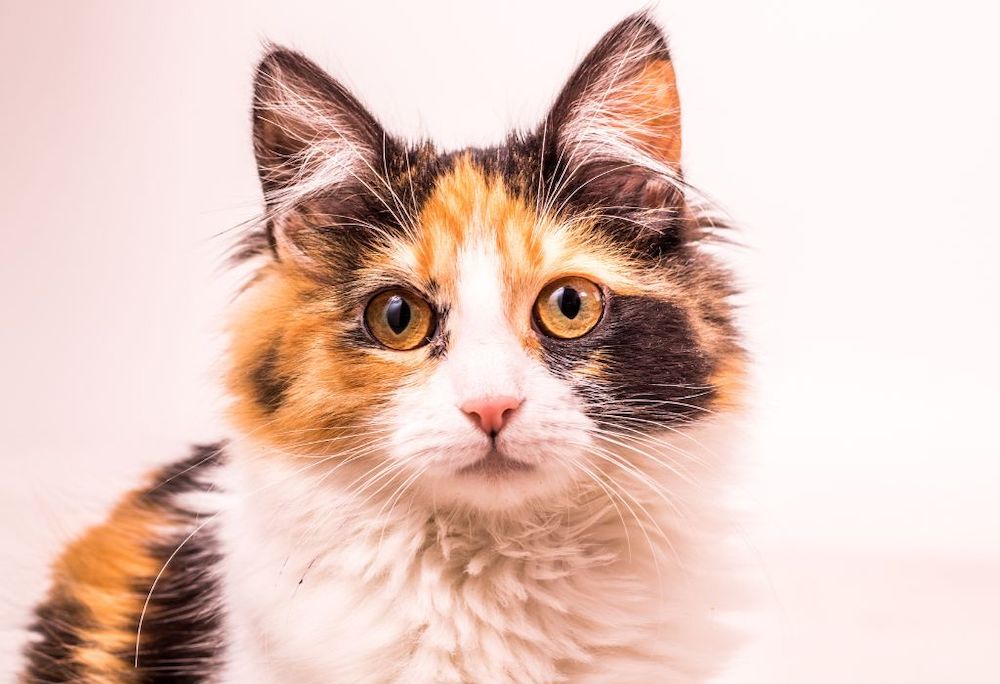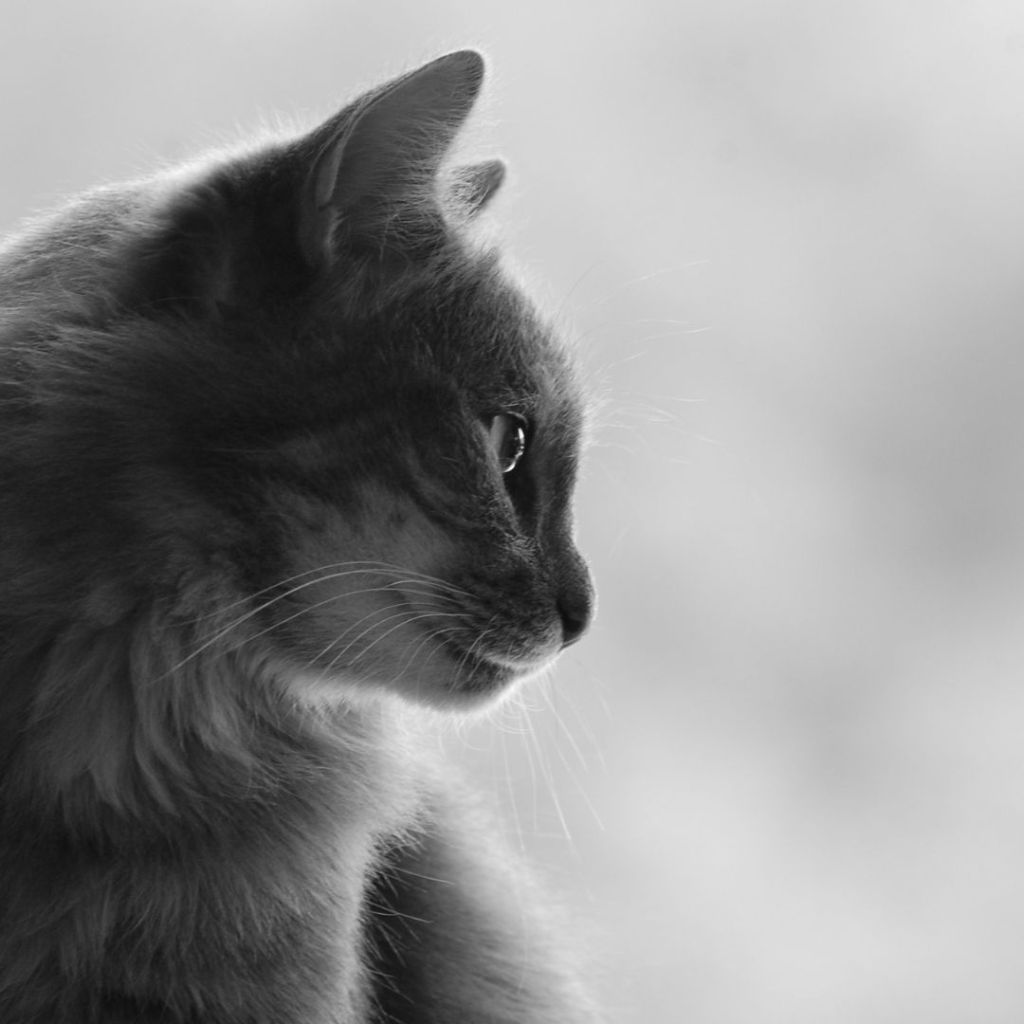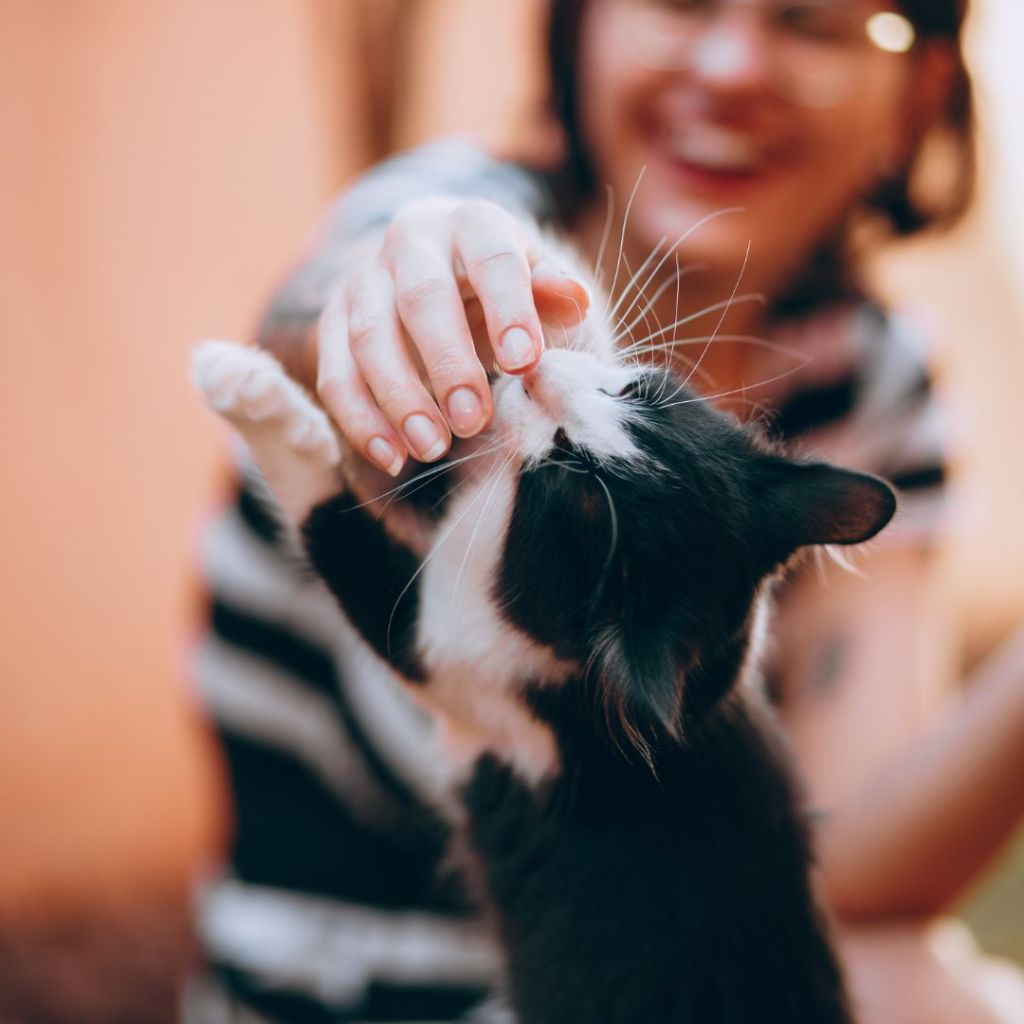
Felines and Food: How to Handle a Cat That Refuses to Eat or Drink
4 Aug 2023.
Your main priority as a cat sitter is to keep your kitty clients safe and healthy. However, it’s hard to know at times how a feline might react when their fur parents are gone. Some cats may refuse to eat or drink when they’re stressed. This in turn can cause stress for you, their wonderful sitter! Do you have a cat client who refuses to eat or drink and you’re not sure what to do? Below, Cat in a Flat offers some great tips on how to handle a cat that refuses to eat or drink while their owner is away.
Table of contents
Reasons why a cat might refuse to eat or drink

If you notice that Mr Whiskers has a decline in appetite or isn’t drinking enough water, you should notify their fur parents right away. There can be a few reasons why a cat refuses to eat or drink. So, it’s always best to deal with the problem as soon as possible. Here are some potential reasons why your cat client refuses to eat or drink:
Anxiety, stress, or depression
What are the reasons a cat refuses to eat or drink? Felines are creatures of habit, so any change in routine (such as their owners going away) could make Mr Whiskers feel more stressed than usual. Signs of stress in cats can include hiding, excessive meowing, and, yes, refusing to eat or drink.
Note to cat owners: It’s possible your cat will experience some level of anxiety, stress, or depression while you are away. This is why it’s always a better idea to hire a cat sitter instead of boarding your kitty. Receiving care in a familiar environment will help reduce stress and anxiety and keep Mr Whiskers happier overall!
Digestive issues
As a cat sitter, you should be wary of bringing food for your kitty clients unless you’ve checked with their owners first. Keep in mind that some cats have food allergies, may become constipated, or develop upset stomachs when exposed to the wrong foods. This can lead to a drop in appetite or desire to drink water. Keep an eye out for symptoms such as frequent vomiting and diarrhoea. These can point to digestive issues in cats.
Other health issues
One of the main questions you should ask paw parents before they go away is if Mr Whiskers has any health issues you need to be aware of. Regardless of any pre-existing conditions, you should still be concerned if a cat refuses to eat or drink. This could be an indication of a new ailment, such as feline flu.
What should I do if a cat refuses to eat or drink?

If you have a cat client that refuses to eat or drink, don’t panic. There are a few things that you, as their cat sitter, can do to help. Here are the 8 major steps you should take to help your furry friend start eating and drinking again:
- Ensure a calm environment. Learn how to properly approach your kitty clients and what to do if you’re looking after a shy cat. Never force interactions with your clients. Instead, go about your usual cat sitting tasks while talking to them in a calm voice. You can even help your fur friend relax by playing some calming cat music.
- Maintain a routine. Occasionally, a cat might refuse to eat or drink as a protest to some change in their home or routine. You can help relieve stress for your furry friend while their paw parents are away by sticking to the same daily schedule. This means visiting your cat client at around the same time each day. Also try to maintain a daily feeding and playtime routine.
- Keep food and water bowls clean. Felines are tidy creatures, so if a cat refuses to eat or drink it could be because they don’t like the state of their bowls. Rinse out your kitty client’s bowls each day and keep an eye out for mould growing in water bowls and fountains.
- Make food and water more palatable. Some cats don’t like cold food, so you can try heating their wet food for 10-15 seconds in the microwave. To get a cat to eat dry food, try drizzling juice from their wet food over their kibbles. You can even make fish ice-lollies to put in Mr Whiskers’ water or to give out as refreshing treats. These will help keep your cat client happy and hydrated—particularly in the hot summer months!
- Offer small, frequent meals. If you have a client who’s worried about their cat refusing to eat or drink while they’re away, multiple daily visits or housesitting might offer them more peace of mind. This way you can provide your furry client with multiple small meals throughout the day.
- Provide encouragement and comfort. A big part of your job as a cat sitter is to help your kitty clients feel comfortable and safe. So, during each visit spend time just relaxing with your furry friend. Make sure to play with them daily and reward them with cuddles and treats for being such a good kitty!
- Provide tempting treats. You might consider bringing in some tasty new treats to tempt your kitty client with. Of course, ask Mr Whiskers’ owners first to make sure it’s okay for you to do so. Cats can get bored of their food, so you can spice up your furry friend’s meals by mixing treats in with their kibbles or wet food!
- Consult a veterinarian. If Mr Whiskers is vomiting, has diarrhoea, or is having trouble breathing, you should take them to the vet immediately. Know the basics of feline first-aid, what to do in an emergency, and how to safely get your cat client into their carrier. If a cat simply refuses to eat or drink but isn’t showing any other symptoms of illness, you can wait 24 hours before taking them for a check-up.
Don’t forget that it’s important to always communicate quickly and clearly with your kitty client’s owners and keep them updated every step of the way. Are you looking for more tips on how to be a stellar cat sitter? Check out our blog to learn the major DOs and DON’Ts of cat sitting and what to do if a cat goes missing while you’re looking after them.
- #cat behaviour
- #catinaflat
- #catsitting
- #pet care
- #pet sitting
- cat behaviour
- cat refuses to eat or drink
- cat sitter tips
- cat sitting
- cat stress
- help cat eat and drink


